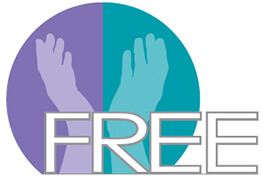Our Services / Behavioral Health Services
Critical Time Intervention
Nassau County
For individuals with Serious Mental Illness (SMI) and Complex Needs
Critical Time Intervention (CTI) in Nassau County is a 9-month, evidence-based program that supports adults with serious mental illness and complex needs during major life transitions, such as hospital to community. The CTI team provides rapid outreach, builds engagement, and connects individuals to long-term outpatient and community supports. Through phased care, the program strengthens skills and support networks to promote independence and stability. The result is smoother discharges, reduced ER readmissions, and lasting recovery outcomes.
Critical Time Intervention (CTI) in Nassau County is a 9-month, evidence-based program that supports adults with serious mental illness and complex needs during major life transitions, such as hospital to community. The CTI team provides rapid outreach, builds engagement, and connects individuals to long-term outpatient and community supports. Through phased care, the program strengthens skills and support networks to promote independence and stability. The result is smoother discharges, reduced ER readmissions, and lasting recovery outcomes.


What is CTI
- Time-limited, evidence-based care management model.
- Supports individuals during transitions (e.g., hospital to community).
- Emphasizes collaboration with hospitals and linkage to outpatient care.
- Builds skills and support networks for post-CTI stability.

Who We Serve
Individuals aged 18 and older diagnosed with mental illness and complex needs.
Examples include:
Examples include:
- Recent or repeated hospitalizations
- Homelessness or justice involvement
- Co-occurring disorders or ER overuse
- Prioritizes individuals transitioning from hospitals or CPEP/ERs

CTI Workflow
- Referral received from hospital (CTI team responds within 24 hours for inpatient and 8 hours for CPEP/ED).
- CTI team conducts outreach and begins Pre-CTI engagement.
- Collaborates with hospital team to gather medical/psychiatric history.

Phase Overview (9 Months)
- Pre-CTI: Building early engagement and connections.
- Phase 1 (Months 1–3): Initiating linkages to community supports.
- Phase 2 (Months 4–6): Trying out and testing supports.
- Phase 3 (Months 7–9): Final transfer of support to ensure long-term stability.
CTI Phases
Pre-CTI Phase
- Coordinate with referral sources to plan for transition.
- Multiple contacts (at least one in person, if possible) with the individual to engage and complete the Intake Assessment before transition.
- Gather consents and records.
- A medical necessity form will be completed by the LPHA.
Phase 1 (Months 1–3)
- Intensive support is provided. CTI staff will visit with the individual 8 times per month (5 visits are in person).
- A person-centered Functional Assessment will be completed and the Phase Plan with specific goals will be implemented.
- Services are based on individual needs and goals.
- A Relapse Prevention/Safety plan is created.
Phase 2 (Months 4–6)
- CTI staff visits the individual 6 times per month (4 are in person).
- Gradually shift responsibility to community supports.
- Strengthen connections resources, such as housing, treatment, and/or benefits, etc.
- Continue skill-building and problem-solving support.
Phase 3 (Months 7–9)
- CTI staff will visit the individual 4 times (two visits are in person).
- Focus on preparing for discharge and long-term stability.
- Ensure support systems are functioning independently.
- Create and document a final transition and discharge plan.

Program Goals
- Ensure successful transitions to community living.
- Link individuals to long-term support systems.
- Build and reinforce a strong support network.
- Empower service recipients to maintain stability and independence.

Benefits of CTI
- Improved discharge outcomes.
- Enhanced coordination with outpatient providers.
- Better patient satisfaction and continuity of care.
- Linkages to substance use, primary care, and skills development services.
- Crisis and support planning individualized to each person.
- Promotes recovery through consistent, phased support.
- Aligns service delivery with person-centered values.
- Empowers individuals with lasting tools for success.

Partnership with Hospitals
- CTI provides a structured discharge support plan.
- Reduces preventable ER visits and readmissions.
- Ensures linkage to community resources and to outpatient services.
- Enhances discharge planning through real-world follow-up.
Contact for Questions or Submissions:
Contact Us to Get Started
For more information, please call
(516) 870-1600 or email info@familyres.org

